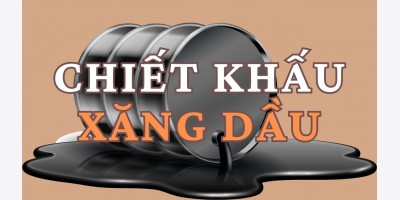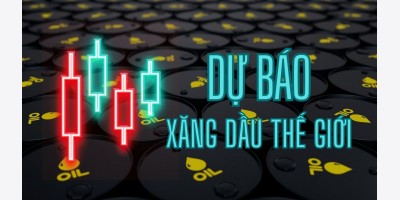Dầu thô tiếp tục giảm giá quanh mức 107 USD
Dầu giao dịch cáºn mức thấp nhất 3 ngày tại thị trÆ°á»ng New York khi có dấu hiệu Ä‘i xuống trong triển vá»ng phát triển kinh tế Mỹ và châu Âu làm nhiá»u ngÆ°á»i dá»± báo nhu cầu nhiên liệu sẽ giảm xuống.
Giao dịch sau ít biến Ä‘á»™ng, sau mức giảm 2.3% ngày hôm qua sau khi Standard and Poor’s Ratings Service giảm mức tín dụng dài hạn của Mỹ, làm dấy lên lo ngại rằng quá trình phục hồi kinh tế thế giá»›i sẽ bị chững lại. Trái phiếu chính phủ của Hy Lạp cÅ©ng mất giá trong mối quan ngại rằng quốc gia này sẽ không có khả năng trả nợ, làm cho tình hình khủng hoảng nợ tại châu Âu thêm phần xấu Ä‘i.
“Lo ngại gia tăng trong giá»›i đầu tÆ° xung quanh vấn Ä‘á» triá»n vá»ng kinh tế Ä‘ang gây ra tình trạng hạ giá,” Ben Westmore, chuyên gia khoáng sản và năng lượng tại Ngân hàng quốc gia Australia – Melbourne cho biết. Dầu “sẽ diá»…n biến theo sau những Ä‘á»™ng thái của thị trÆ°á»ng vốn. Lo ngại vá» các khoản nợ euro cÅ©ng là vấn Ä‘á» cấp thiết.”
Dầu thô tháng 5 giao dịch ở mức 107.16/thùng, tăng 4 cent trong giao dịch Ä‘iện tá» tại sàn giao dịch New York Mercantile Exchange lúc 8h30 sáng nay. Hôm qua, giá dầu thô giảm 2.54 USD xuống mức 107.12 USD, mức thấp nhất kể từ 13/4. Các hợp đồng giao tháng 6 giảm 7 cent giữ ở mức 107.62 USD.
Dầu thô Brent giao tháng 6 giao dịch ở mức 121.70 USD/thùng, tăng 9 cents tại sàn ICE Futures Europe – London. Hôm qua, hợp đồng giảm giá 1.84 USD, tÆ°Æ¡ng Ä‘Æ°Æ¡ng 1.5%, xuống mức 121.61 USD, mức thấp nhất kể từ 12/4.
Standard & Poor’s cảnh báo chính quyá»n Mỹ vá» nguy cÆ¡ giảm mức tín dụng AAA nếu các nhà hoạch định chính sách không nhất trí thông qua má»™t kế hoạch cắt giảm thâm hụt ngân sách và nợ quốc gia.
Hôm qua dầu cÅ©ng giảm giá sau khi Trung Quốc yêu cầu các ngân hàng tăng dá»± trữ bắt buá»™c lên mức ká»· lục 20.5% để kiá»m chế lạm phát, báo hiệu mức tăng nhu cầu nhiên liệu có thể giảm và thông báo của Bá»™ trưởng Dầu mỠẢ Ráºp Saudi Ali al-Naimi vá» tình hình quá cung trên thị trÆ°á»ng.
Theo khảo sát, các chuyên gia phân tích dá»± báo rằng báo cáo ngày mai của bá»™ Năng lượng vá» mức dá»± trá»± dầu thô tại Mỹ tuần trÆ°á»›c có thể tăng lên 1.4 triệu thùng từ mức 359.3 triệu, mức tăng tuần thứ 7 liên tiếp.
Oil Trades Near Three-Day Low on Concern U.S., European Demand May Falter
Oil traded near a three-day low in New York as signs of a worsening economic outlook in the U.S. and Europe stoked speculation fuel demand may falter.
Futures were little changed, having slipped 2.3 percent yesterday, after Standard & Poor’s Ratings Service cut the U.S. long-term credit outlook, fueling concern that a recovery in the global economy may slow. Greek government bonds slumped amid concern the nation won’t be able to avoid defaulting on its debt, adding to signs Europe’s debt crisis is worsening.
“Jitters among investors around the outlook is causing a bit of a sell-off,” said Ben Westmore, a minerals and energy economist at National Australia Bank Ltd. in Melbourne. Oil “seems to be following what’s happening in the equity markets. There was also some resurgence around the euro debt concerns.”
Crude oil for May delivery traded at $107.16 a barrel, up 4 cents in electronic trading on the New York Mercantile Exchange at 11:36 a.m. Sydney time. Yesterday, it slid $2.54 to $107.12, the lowest since April 13. The contract expires today. The more- actively traded June futures were 7 cents lower at $107.62.
Brent crude oil for June settlement traded at $121.70 a barrel, up 9 cents, on the London-based ICE Futures Europe exchange. Yesterday, the contract slipped $1.84, or 1.5 percent, to $121.61, the lowest since April 12.
Equities Slip
Standard & Poor’s put the U.S. government on notice that it risks losing its AAA credit rating unless policy makers agree on a plan to cut budget deficits and the national debt.
The MSCI Asia Pacific Index fell 0.6 percent to 134.83 at 9:20 a.m. in Tokyo, with about six shares dropping for each that climbed on the 1,023-member gauge. The measure fell 0.5 percent last week, reversing three straight weeks of gains.
Japan’s Nikkei 225 (NKY) Stock Average fell 1.1 percent. Australia’s S&P/ASX 200 Index slumped 1.1 percent and New Zealand’s NZX 50 Index lost 0.5 percent. South Korea’s Kospi index slipped 0.5 percent.
Oil also declined yesterday after China increased banks’ reserve requirements to cool inflation, signaling fuel demand growth may slow, and Saudi Arabian Oil Minister Ali al-Naimi said that the market is “oversupplied.” The kingdom is the world’s biggest crude exporter.
An Energy Department report tomorrow may show U.S. crude inventories increased 1.4 million barrels last week from 359.3 million, climbing for a seventh week, according to analysts surveyed by Bloomberg News.








